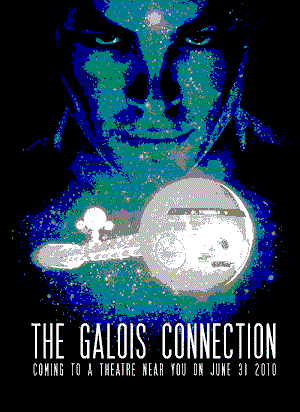Sarah Tomlin in a Nature article on the July 12-15 2005 Mykonos meeting on Mathematics and Narrative—
"Today, Mazur says he has woken up to the power of narrative, and in Mykonos gave an example of a 20-year unsolved puzzle in number theory which he described as a cliff-hanger. 'I don’t think I personally understood the problem until I expressed it in narrative terms,' Mazur told the meeting. He argues that similar narrative devices may be especially helpful to young mathematicians…."
Michel Chaouli in "How Interactive Can Fiction Be?" (Critical Inquiry 31, Spring 2005), pages 613-614—
"…a simple thought experiment….*
… If the cliffhanger is done well, it will not simply introduce a wholly unprepared turn into the narrative (a random death, a new character, an entirely unanticipated obstacle) but rather tighten the configuration of known elements to such a degree that the next step appears both inevitable and impossible. We feel the pressure rising to a breaking point, but we simply cannot foresee where the complex narrative structure will give way. This interplay of necessity and contingency produces our anxious— and highly pleasurable— speculation about the future path of the story. But if we could determine that path even slightly, we would narrow the range of possible outcomes and thus the uncertainty in the play of necessity and contingency. The world of the fiction would feel, not open, but rigged."
* The idea of the thought experiment emerged in a conversation with Barry Mazur.
Barry Mazur in the preface to his 2003 book Imagining Numbers—
"But the telltale adjective real suggests two things: that these numbers are somehow real to us and that, in contrast, there are unreal numbers in the offing. These are the imaginary numbers .
The imaginary numbers are well named, for there is some imaginative work to do to make them as much a part of us as the real numbers we use all the time to measure for bookshelves.
This book began as a letter to my friend Michel Chaouli. The two of us had been musing about whether or not one could 'feel' the workings of the imagination in its various labors. Michel had also mentioned that he wanted to 'imagine imaginary numbers.' That very (rainy) evening, I tried to work up an explanation of the idea of these numbers, still in the mood of our conversation."
See also The Galois Quaternion and 2/19.

New York Lottery last evening









